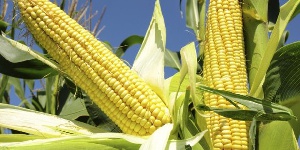A report by the Alliance for a Greene Revolution in Africa (AGRA), which was released in June has noted that in Ghana prices of maize were generally stable in April after increasing from March levels mostly due to easing of COVID-19 pandemic restrictions allowing market activities to resume and increased availabilities
Throwing more light on the performance of West African countries with respect to food prices in the wake of the COVID-19, the report said prices generally remained stable following the end of the Ramadan festival which resulted in a temporary increase in food demand which led to price spikes in some parts of the region.
Armed conflicts and continued movement and trade restrictions which are limiting food distribution efforts resulting in seasonal food shortages have contributed to price spikes in other parts of the region.
In Burkina Faso, prices generally remained high despite improved domestic availabilities following the increased demand during the Ramadan festival, which saw a seasonal depletion in stocks. In conflict affected areas, prices also remained significantly high as distribution efforts remain disrupted, resulting in shortages.
In Cote d’Ivoire, prices varied across commodities and different markets with maize prices increasing and rice prices remaining stable in Man market while Cassava prices decreased in Korhogo market.
In Niger, prices varied across market and commodities with rice prices increasing in most markets, and sorghum millet prices remaining generally stable despite temporary shortages due to COVID-19 disruptions and increased demand during the Ramadan festival. Conflicts in the Diffa, Tahoua and Tillabery regions continue to affect food distributions resulting in high commodity prices in these areas19.
In Nigeria, prices of locally produced cereals rose further in April and at a steep rate, underpinned by strong buying amid movement restrictions related to COVID-19 and the Ramadan festive period. The lockdown measures worsened the situation in the northeast of the country, already affected by the prolonged conflict. Prices in April were overall well above their levels a year earlier.
Business News of Wednesday, 12 August 2020
Source: laudbusiness.com

















